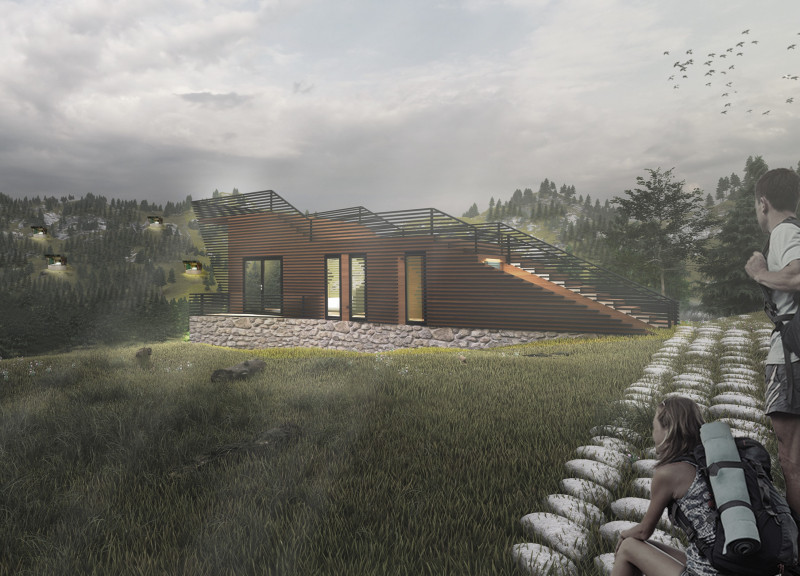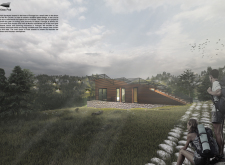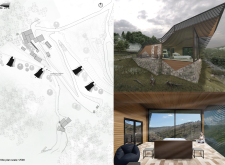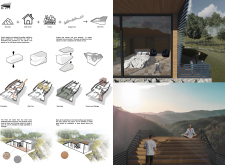5 key facts about this project
Material choice is a fundamental aspect of the Xisto Pod's design. The project utilizes cork for its external finish, which offers insulation and a connection to local traditions. Charred wood is deployed in the horizontal shutters, enhancing durability while providing an appealing aesthetic. Local rocks form the foundation, grounding the structure in the landscape. Matte iron is used for windows and doors, complementing the natural materials with a contemporary touch. Wood features prominently in both the interior walls and ceiling, contributing warmth to the living space.
The spatial organization of the Xisto Pod is centered around user experience. The layout facilitates smooth movement between indoor and outdoor areas, allowing for easy access to stepped terraces that provide opportunities for social interaction, relaxation, and contemplation. These terraces extend the living space, promoting a connection with the surrounding nature. This relationship is accentuated by the project’s wet core design, where essential services such as the kitchen and bathroom are centrally located, enhancing functionality within an open concept framework.
Unique to the Xisto Pod is its adaptive roof design, which angles to collect rainwater efficiently. This harvested water is filtered and stored for reuse, highlighting the project’s commitment to sustainability. The project’s stepped terraces not only offer scenic views but also serve as flexible outdoor spaces for various activities, from quiet reflection to communal gatherings. This adaptability reflects modern living demands while respecting the ecological context.
The architectural design of Xisto Pod represents an evolution of traditional Portuguese architecture, merging modern aesthetics with environmental considerations. The emphasis on local materials and innovative design strategies positions this project as a relevant case study in contemporary architecture. For those interested in architectural plans, sections, and designs that illustrate these concepts further, detailed presentations are available for exploration.


























